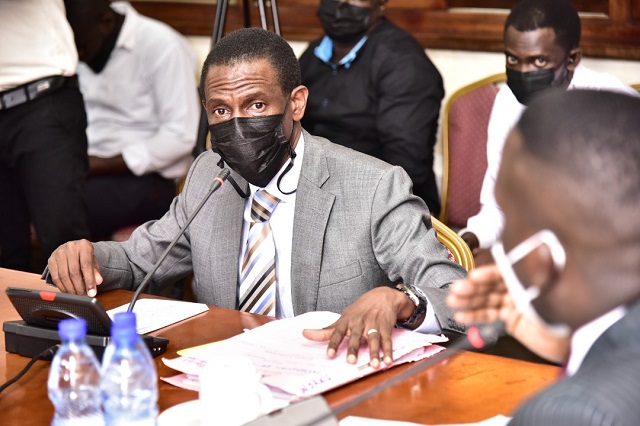
Kampala, Uganda | THE INDEPENDENT | The Attorney General has asked the Constitutional Court to dismiss with costs a petition challenging the new amendments in the Computer Misuse Act of 2022.
The response which has been filed before the Constitutional Court is in respect to a petition filed by 13 petitioners on October 17th, 2022. The petitioners are, Norman Tumuhimbise, Arnold Mukose, Farida Bikobere, Jeremiah Mukiibi, Kato Tumusiime, Lillian Luwedde, Rogers Tulyahabwe, Teangel Teddy Nabukeera, Nixon Segawa together with their employer Alternative Digitalk Limited, an Online Television, Activist Angella Namirembe and lawyers Simon Peter Esomu and Anthony Odur.
They petitioned Court challenging the decision taken on September 8th, 2022 by the Parliament to pass the Computer Misuse (Amendment Act), 2022 which was subsequently assented to by President Yoweri Kaguta Museveni on October 13th, 2022.
It was tabled by the Kampala Central Member of Parliament Muhammad Nsereko. The law makes it a crime to write, send or share hateful, unsolicited, misleading, or malicious information online. It also criminalizes the use of photos on social media without the express permission of the owners.
Further, it prohibits sharing information that is likely to degrade or ridicule another person, group of persons, tribe, religion, ethnicity, or gender, and children without the consent of their parents or guardians.
The Act also creates a punishment ranging between five to 10 years or 10 million shillings or both for people found in breach, and it further criminalizes recording another person’s voice or video without their consent and unauthorized access to personal information.
The petitioners argue that the amendments are overly broad, imprecise, and unjustifiably limit the freedom of expression and the right to practice one’s profession and carry on any lawful occupation, trade, or business and access to information.
They asked the Constitutional Court to nullify the amendments and declare them null and void on grounds that they contravene several constitutional provisions.
The Attorney General who is listed as the only respondent to the petition wants the case dismissed saying the petition is misconceived and lacks merit.
Relying on an affidavit of Adolf Mwesige Kasaija the Clerk to Parliament, the Attorney General says the Act was premised on the need to enhance the enjoyment of the right to privacy which is being affected by the abuse of online and social media platforms through authorized access, sharing unsolicited, malicious, hateful and unwarranted information and to further address new and emerging threats to the enjoyment of the right to privacy guaranteed under the constitution.
“That I know that the Members of Parliament debated the advancement of technology, especially computer-generated technology, and noted that the internet had become a platform for misuse and abuse which called for the strengthening of the existing legal framework”, reads the affidavit.
Mwesige adds that the law was also passed to protect the right of privacy for children in the digital age in their best interest due to increased abuse of their rights and it was further done to limit hate speech in the interest of the community.
“That I know the Members of Parliament also appreciated the advancement in information technology which now offers a massive range of new products and services which are being abused by users through illegitimate unsolicited messages and there was no existing legal framework to regulate the same”, reads Mwesige ‘s affidavit.
According to Mwesige, he has been advised by his lawyers in the Attorney General’s chambers whose advice he believes to be true that the contentious sections of the Computer Misuse Act are demonstrably justifiable restrictions in a free and democratic society and do not contravene any provisions of the constitution.
The Attorney General wants the petition to be thrown out because the petitioners are not entitled to the prayers, orders, and declarations sought.
The case is yet to be fixed for hearing before the Constitutional Court Justices.
There is also a related case filed by the Legal Brains Trust, a non-profit organization also challenging the Act in the East African Court of Justice on grounds that the law infringes on several provisions enshrined in the East African Community treaty where Uganda is a signatory. The Attorney General is yet to respond to this matter.
A similar petition pending in the Constitutional Court was also filed in 2019 by the Uganda Law Society challenging specifically the sections of the Computer Misuse Act which create the offenses of offensive communication and cyber harassment on grounds that they violate freedom of expression.
****
URN
 The Independent Uganda: You get the Truth we Pay the Price
The Independent Uganda: You get the Truth we Pay the Price



